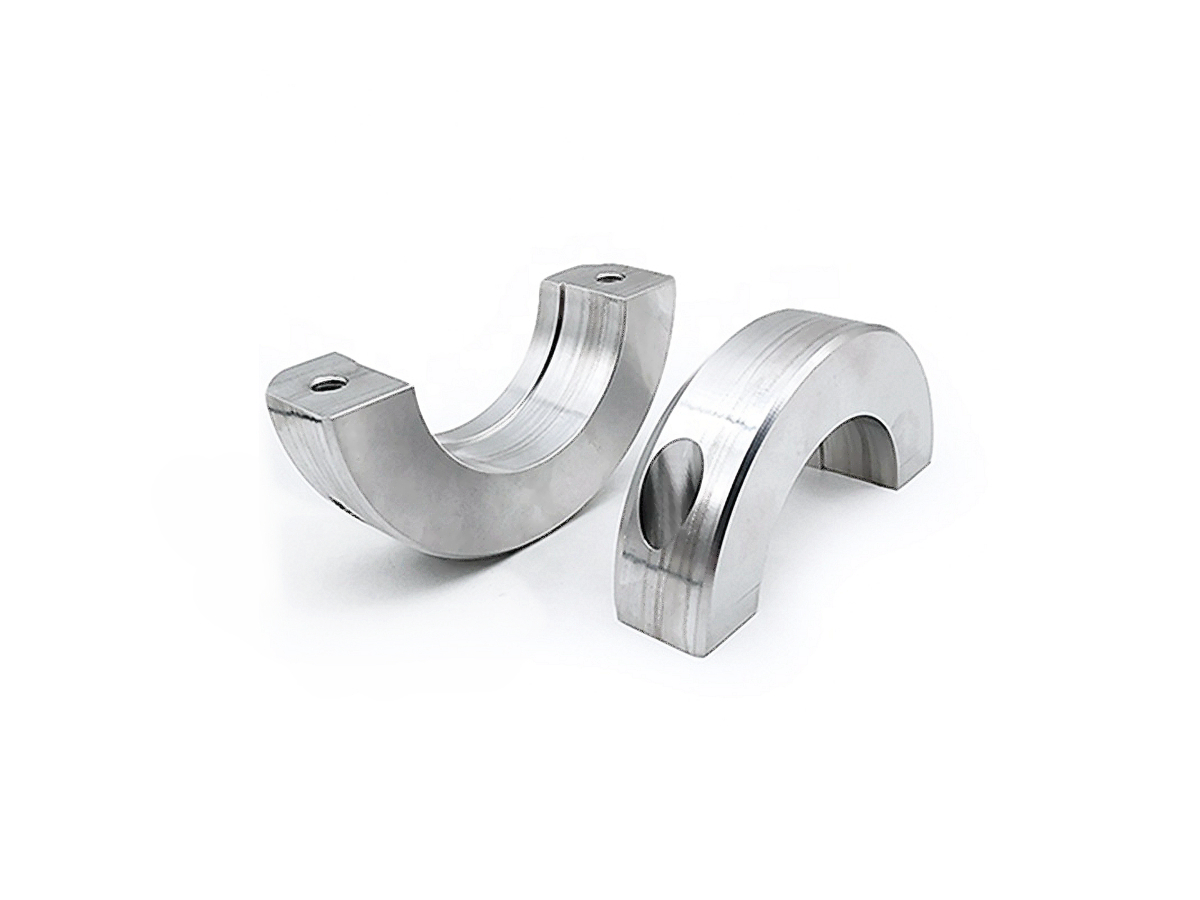Low-Volume CNC Machining of Stainless Steel SUS303 for Precision Parts and Components
Introduction to Low-Volume CNC Machined SUS303 Stainless Steel in Precision Manufacturing
Industries such as medical devices, aerospace, and automation equipment rely heavily on materials that offer excellent machinability, corrosion resistance, and consistent dimensional stability. Stainless steel SUS303 stands out as an ideal candidate, recognized for its superior machinability, reliable mechanical properties, and corrosion resistance. It particularly benefits precision parts and components, including fittings, shafts, valves, and instrumentation, especially in low-volume production scenarios.
Employing advanced CNC machining, manufacturers can achieve highly accurate and complex geometries from SUS303 stainless steel, enhancing dimensional precision and consistency and ensuring exceptional surface finishes.
Comprehensive Analysis of SUS303 Stainless Steel for Precision Components
Comparative Performance of SUS303 Stainless Steel and Similar Materials
Material | Tensile Strength (MPa) | Yield Strength (MPa) | Machinability | Typical Applications | Advantage |
|---|---|---|---|---|---|
620-750 | 240-450 | Excellent | Valves, fittings, precision shafts | Superior machinability, corrosion resistance | |
515-720 | 205-515 | Good | General components, hardware | Good corrosion resistance | |
515-620 | 205-310 | Moderate | Marine parts, medical implants | Excellent corrosion resistance | |
485-620 | 170-310 | Moderate | Surgical instruments, medical devices | High corrosion resistance, biocompatible |
Strategic Material Selection for CNC Machined SUS303 Stainless Steel Components
Selecting SUS303 stainless steel for precision CNC machining involves assessing factors such as machinability, corrosion resistance, and mechanical properties:
Precision components, valves, shafts, and fittings demanding excellent machinability, dimensional stability, and good corrosion resistance significantly benefit from SUS303 stainless steel due to its improved machining characteristics compared to other stainless steels.
General-purpose components and hardware requiring moderate machinability and slightly higher corrosion resistance typically use SUS304 stainless steel.
Components needing superior corrosion resistance, especially for marine or chemical environments, often select SUS316 stainless steel.
Medical components requiring biocompatibility and superior corrosion resistance frequently choose SUS316L stainless steel.
Precision CNC Machining Processes for SUS303 Stainless Steel Components
CNC Machining Process Performance Overview
CNC Machining Process | Dimensional Accuracy (mm) | Surface Roughness (Ra μm) | Typical Applications | Key Advantages |
|---|---|---|---|---|
±0.005-0.01 | 0.4-1.6 | Precision shafts, valves | High rotational accuracy, fine surface finish | |
±0.005-0.02 | 0.4-3.2 | Complex fittings, custom brackets | Versatile and detailed machining | |
±0.01-0.02 | 1.6-3.2 | Precision holes, instrumentation fittings | Precise hole alignment and depth control | |
±0.003-0.01 | 0.2-0.6 | Complex components, aerospace fittings | Ultra-precise geometries |
Optimizing CNC Machining Processes for SUS303 Stainless Steel Components
Selecting the most suitable CNC machining process involves considering the complexity, required accuracy, and surface finish needs:
Precision shafts, valves, and rotational components demanding dimensional precision of ±0.005 mm and excellent surface quality (Ra ≤1.6 µm) greatly benefit from CNC Turning Service.
Complex fittings, brackets, and custom precision parts requiring detailed features and accuracy within ±0.005 mm utilize CNC Milling Service for optimal versatility.
Precision fittings and instrumentation components requiring accurate hole positioning (±0.01 mm tolerance) employ CNC Drilling Service to ensure consistent assembly performance.
Highly complex, multi-feature components or intricate geometries with tight dimensional tolerances (±0.003 mm) and exceptional surface finishes (Ra ≤0.6 µm) rely on Multi-Axis CNC Machining Service to achieve maximum precision and functionality.
Advanced Surface Treatments to Optimize SUS303 Stainless Steel Components
Surface Treatment Performance and Suitability
Treatment Method | Corrosion Resistance | Wear Resistance | Industrial Suitability | Typical Applications | Key Features |
|---|---|---|---|---|---|
Excellent (>1000 hrs ASTM B117) | Moderate | Excellent | Instrumentation parts, valves | Enhanced corrosion resistance | |
Outstanding (>1500 hrs ASTM B117) | Moderate | Excellent | Precision fittings, medical instruments | Improved smoothness, corrosion resistance | |
Excellent (>1500 hrs ASTM B117) | Very High (HV1500-2500) | Excellent | High-wear precision parts | Exceptional hardness, wear resistance | |
Good | Moderate | Good | Surface finishing, aesthetic parts | Improved appearance, uniform finish |
Strategic Surface Treatment Selection for CNC Machined SUS303 Stainless Steel
Choosing the optimal surface treatment for SUS303 components involves balancing corrosion resistance, wear characteristics, and visual quality:
Precision instrumentation parts, valves, and fittings frequently use Passivation for reliable corrosion protection (≥1000 hrs ASTM B117) and surface cleanliness.
For precision fittings, medical instruments, and components requiring outstanding surface smoothness and corrosion resistance, choose Electropolishing for superior finishes and durability.
High-wear precision components, such as shafts and valves exposed to abrasive environments, benefit significantly from PVD Coating, providing exceptional hardness (1500-2500 HV) and superior wear resistance.
Components requiring aesthetic appeal and consistent surface finishes, such as brackets or visible parts, commonly select Sandblasting to achieve a uniform, matte appearance.
Rigorous Quality Assurance for CNC Machined SUS303 Stainless Steel Parts
Detailed Quality Control Practices
Ensuring quality of SUS303 stainless steel components involves comprehensive practices:
Dimensional Inspection: Precision measurements using Coordinate Measuring Machines (CMM), ensuring tolerances of ±0.003 mm to ±0.01 mm.
Surface Finish Testing: Profilometers verify roughness specifications (Ra 0.2-3.2 µm) to meet functional requirements.
Mechanical Property Testing: ASTM-standard tensile (ASTM E8), yield strength, and hardness tests confirm mechanical consistency.
Corrosion Resistance Testing: ASTM B117 salt spray testing verifies corrosion resistance exceeds 1000 hours.
Non-Destructive Testing (NDT): Ultrasonic, radiographic, and magnetic particle inspections ensure the absence of defects.
Comprehensive Documentation: ISO 9001-compliant quality records guarantee full traceability and standards compliance.
Key Applications of CNC Machined SUS303 Stainless Steel Components
Precision instrumentation fittings and valves.
Aerospace component parts.
Medical device fittings.
Low-volume, high-precision shafts.
Related FAQs:
Why is SUS303 stainless steel ideal for precision CNC machined components?
What CNC machining processes are most effective for SUS303 stainless steel parts?
Which surface treatments enhance CNC machined SUS303 stainless steel components?
How does CNC machining ensure precision and accuracy in SUS303 stainless steel?
Which industries benefit most from low-volume CNC machined SUS303 stainless steel components?

